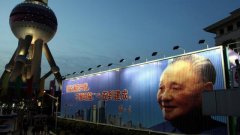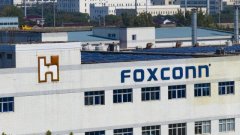The road of reform is upset, which also makes the evaluation of Deng different from all parties.The official context describes him as "chief designer of reform and opening up", creating today's economic miracles; Fu Gaoyi, a professor of Harvard University and the author of Deng Xiaoping, believes that reform and opening up have no clear, complete, and ready -made design drawings.The general manager of the leadership transformation process; Maca Quer, a professor at Harvard University, believes that "chief designer" should be Zhao Ziyang, and Deng is more like the "godfather" of reform.Bao Pu of Ziyang's memoir agreed with the point of view of Taiwanese scholar Zhong Yanlin, and believed that Deng Xiaoping was the "deputy handsome" of Mao Zedong, and concluded that "the principal is in Mao, the success is in Deng" conclusion.
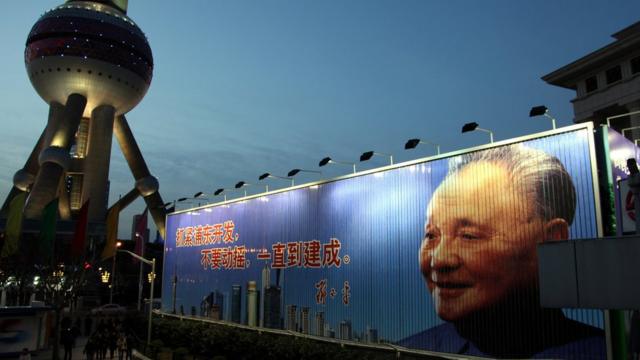
Which historical evaluation is more fair and it takes time to continue inspection.But on the 40th anniversary of China's reform and opening up, what we can do is to re -observe the details of his decision -making at critical moments.
Fu Gaoyi quoted the evaluation of the old leaders in the party, "Just like the Zunyi Conference is the turning point of Mao Zedong's becoming the party chairman. This work meeting is a decisive event of Deng Xiaoping's rise."
Maybe a glimpse of Deng Xiaoping's heart than the outside world is his early class work.Deng Xiaoping, who was studying at Zhongshan University, Moscow on August 12, 1926, was only 21 years old. He wrote in his homework, "The concentrated rights must be exercised from top to bottom. Obief of the superior order is absolutely necessary.Determine with the situation " The planned economy is still a market economy -the game of ideas
Regardless of the official context or in the impression of public opinion, Deng Xiaoping's economic achievements with China are tightly tied together.
At the beginning of reform and opening up, China showed good economic potential.In 1982, the GDP reached 9.1%and 10.9%in 1983.Therefore, visiting the foreign guests often praised Deng's ability to develop the economy.Zhang Wei, who was translated by Deng Xiaoping, was quoted in his video program. When Deng heard such a compliment, Deng often said, "In terms of economic issues, I am a layman. Even if I say something, I am political.As an angle, the reform and opening up of the Chinese economy is what I proposed, but how to engage in reform and opening up, some details, and some specific issues that need to be considered."
Bao Pu Xiang explained that Deng Xiaoping's environmental environment is very different. Deng's achievements are the economic policy of changing the era of hair, but he does not know how to change it.Later prefaces that Zhao Ziyang is the designer of China's reform and opening up, and Deng Xiaoping is the "godfather", that is, the person who is filming when he is constantly arguing. From this perspective, his impact on China is of course great.
The title of "Reform Godfather" is indeed traceable. Deng Xiaoping's early development goals and decisions such as "price breakthroughs" do not conform to the laws of economic.However, this does not mean that Deng Xiaoping, who is "talking about the economy from a political perspective," has no credit.On the contrary, political and ideological obstacles were the biggest puppets in China's economic reform at that time.
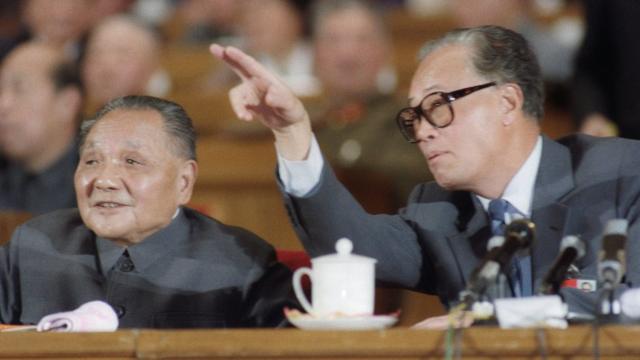
The first problem faced at the beginning of reform and opening up was how to evaluate Mao Zedong.Hua Guofeng proposed "two ordinary" (we all maintained the decisions made by Chairman Mao; we have always followed Chairman Mao's instructions), Deng Xiaoping, Chen Yun and other veteran cadres have attacked.Fast denied and marginalized.
After this battle, the winners formed a consensus of "centered on economic construction", but how to build the economy divided the Chinese politics at that time into two -on the one side, led by Deng Xiaoping and advocated the "market economy"Reformists "; on the other hand, the" conservatives "of the planned economy are led by Chen Yun.Fu Gaoyi called it "one mountain and two tigers"; Yang Jizhong called it "double peak politics"; Zhao Ziyang also confirmed in the course of reform that in terms of reform and opening up and economic constructionProficiency.
In the 1980s, the mutual game of different economic claims was frequently developed -first is the differences in economic growth goals. The reformists believe that the goal is higher to achieve the overturn in 2000. The conservatives believe that the goal is too high, and it will be too high.As a result of chaos and differences, in 1981, the National People's Congress did not pass the annual budget, nor did it clear the goal of the growth of the "six -five" plan; in 1983, the conservatives publicly criticized the "guidance plan" to defend the "instruction plan"; In 1984, Deng Xiaoping inspected and affirmed the construction of Shenzhen, and will be expanded to 14 cities. In 1985, Chen Yun used the financial deficit and inflation on the data to bring back the reform of the fast forward.The doctrine economy should still be planned proportional. "In 1987, Deng Xiaoping directly denied Chen Yun's claim, saying that" (past) was mainly based on the planned economy, and now don't talk about this "; in 1988, Deng decided to cancel cancellationA large amount of price control, however, his error estimation of the situation caused the price to rise quickly, triggering panic snap -up, the policy was quickly suspended, and the economic decision -making power also passed from the reorganization faction Zhao Ziyang to Li Peng, who supported Chen Yun's tightening policy.Essence
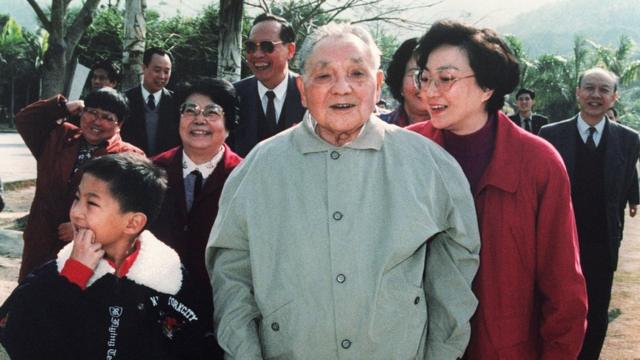
The game of the economic route continues to the final chapter of Deng Xiaoping's political career.In 1992, Deng Xiaoping's southern tour, while visiting, stated, walked to Zhuhai to hold a military conference attended by two vice chairmen of the Military Commission. At the meeting, Deng did not talk about the military and emphasized that "whoever reforms does not go down."Fu Gaoyi said in his work, "The powerful lineup of the military leaders attending the meeting showed that if necessary, the senior executives of the army are willing to support a new leader."Jiang Zemin felt the pressure. Five days later, he called Deng Xiaoping to worship the New Year and became a firm reformist afterwards.
Deng Xiaoping's Southern Tour speech has also been widely supported in public opinion. It was not until the 14th National Congress of the Communist Party of China that the goal of establishing a socialist market economy was officially established.At this time, 14 years have passed since the beginning of reform and opening up.
Yang Jizhong described that on the one hand, he vigorously promoted the market economy and strengthened leadership on the one hand. The "authoritarian political plus market economy" model established by Deng Xiaoping runs through the period of governing the entire Jiang Zemin and Hu Jintao.This has also become the most significant impact of Deng Xiaoping on China's economic reform.
Two political reforms and heritage abandoned -try to fail
Perhaps many people don't know that at the beginning of the reform and opening up, one of the most severe criticisms on the situation of rule came from Deng Xiaoping -August 18, 1980, the Central Political Bureau expanded meeting on the Political Bureau of the Central Committee, Deng's reform speech on the party and state leadership systemIt is pointed out that there are political disadvantages within the party, such as the abuse of power, leaving the reality, separation from the masses, rigid ideas, rules of ink, irresponsible, democratic, and corruption.Although the content of the speech has not reached the point where the Chinese Communist Party's governing status is not changed, it is actively evaluating for democracy.
It is this rigorous speech that brings the idea of political reform into Chinese politics.However, the Polish unity union incident occurred while Deng's speech. Other senior officials in the party were worried about out of control like Poland. In October, the Central Propaganda Department instructed not to discuss Deng's above speech.In December, Deng Xiaoping himself also regulated his caliber, saying that political reform should be cautious.
High -profile speech is silent.The awareness of political reform at the beginning of the reform and opening up was quickly extinguished by the signs.
However, this is not the only one in the era of Deng Xiaoping.In 1986, due to economic reform, political reform was once again on the agenda. Deng Xiaoping said, "The reform of the political system should be with the economic system reformMutual dependence and cooperation.Only engage in economic system reforms, not the reform of the political system, and the reform of the economic system, because it first encounters the obstacles of people."
Three months later, Zhao Ziyang established the central political system reform seminar according to Deng's instructions.Wu Guoguang, a professor at the University of Victoria, Canada, was selected as the director of the People's Daily Review Department and was selected into the group.In Wu Guoguang's paper on China's political reform, he pointed out that Deng Xiaoping and Zhao Ziyang's fundamental differences with political reform -the former hopes to improve management efficiency through high degree of positive personnel, and the latter wants to reduce the party's economic and social in a larger scale.The role in the unit.Political reforms have been promptly mentioned again, and the meaning is no longer the same, more like an administrative reform.
Even so, the political reform is still in the discussion stage, and it has been interrupted in the "price breakthrough".
The political reform of the Deng Xiaoping era was not unprecedented.The first is to set the term system. Shortly after his speech in August 1980, he told Italian journalist Farach that in the past, there was actually a lifetime system for leadership. The system defects could not be seen in the 1960s. "That is we are still young."EssenceBased on this, in 1982, 172 "old cadres" stepped down, and the reserved level and treatment joined the Central Gu Committee of Director Deng Dang.Remove the power of veteran cadres.It is also this year that the newly revised constitution stipulates that the President and Vice Chairman of the State President "must not be more than two consecutive years."
During Deng's power, he also repeatedly emphasized and promoted the "separation of party and government".In an interview, Wu Guoguang recalled that at that time, Deng Xiaoping's idea was that the party committee secretary was a shopkeeper, just like a modern company.The government is managed.
Bao Pu said that Deng Xiaoping missed an excellent political reform opportunity.
It is worth mentioning that Mao Zedong's former secretary Li Rui published on Yan Huang Chunqiu why I proposed to re -send Deng Xiaoping's "8 · 18 speech", and once again mentioned the fierce speech of Deng Xiaoping in 1980 -such as excessive power of powerIn concentration, "the first secretary must be handsome and filmed"; parents make the wind, "Yiyan, personal decision major issues, personal worship, and individuals over the organization."Li Rui said that the content of the speech still has practical significance, and said that the most effective means of Su Qing feudalism is political democracy.
Li Rui tried to make a sound through Deng Xiaoping's political reform heritage, but it did not set off more and greater discussions as Deng Xiaoping's era.


